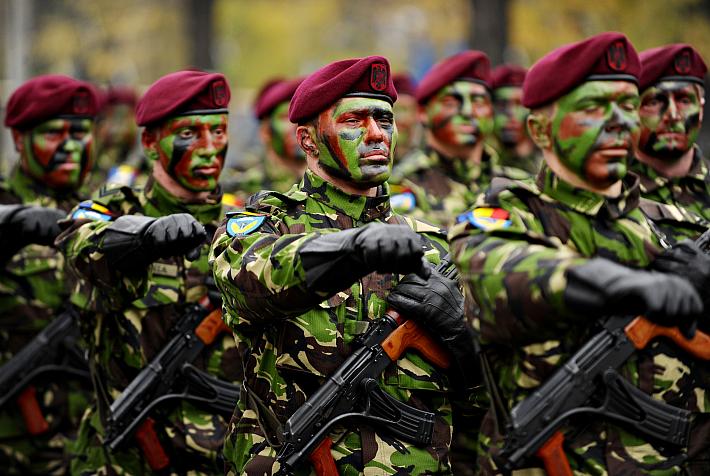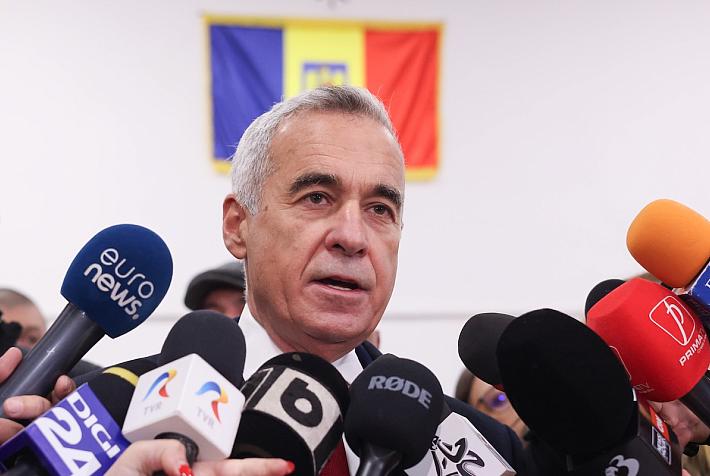A Romanian case study: Communicating without communication
 Guest writer Mariana Ganea analyses the way the Romanian society as a whole communicates, and highlights the communication patterns of some of the major political actors in Romania.
Guest writer Mariana Ganea analyses the way the Romanian society as a whole communicates, and highlights the communication patterns of some of the major political actors in Romania.
Communication is one of the main characteristics of our modern world. There are plenty of theories about communication, and in fact communicating has become more than a a compulsory task in this society that is so focused on image. It has become a fashion.
“You cannot live without communicating” I learned from Neuro Linguistic Programming (NLP). Many could say that they knew it and that there isn’t anything new under the sun, or, as a few friends of mine, say, the NLP people didn’t discover hot water. Maybe my friends are right, but I would only add a very simple and common question: Do we really know how to communicate?
The answer to this ordinary question is complicated because, in my opinion, it should arise from our idea about the role of communication in our life and from our knowledge about the elements of this process. In my career as a trainer, I have met people who thought that they knew how to communicate very well only because they were speaking and and writing correctly. Many times I had to explain what any communication book would detail: communication has a verbal component, a nonverbal component and a para-verbal component, and the verbal component isn’t the most important. It has happened quite often during my communication training hours to extend the brainstorming about the role and the importance of all these three elements into extra classes and it demonstrated to me at least one thing: many mature people don’t have the “communication culture”. They weren’t really educated in this area, but most of them are interested in it, so they understand how important it is to know how to communicate.
If I look around me, on the street, in my office, in the media or in the political environment I can conclude as tout ensemble Romanian society isn’t used to communicating. Maybe the reasons are cultural, historic or only social psychology. It isn’t my scope here to find the causes, but I want to find and give everyday examples, while trying to designate potential solutions.
I’m going to give one example. Just look at the people on the street, at our chaotic traffic or at the public transport, for instance. We can see people who argue with raised voices, people who do not really care if they disturb others around them, people who almost never listen to the other person. I think that they don’t have the culture of communication, which, if it were in place, could have given them the possibility to communicate correctly and send their message across effectively. What is the solution in such a situation? For starters, it's education. How? Maybe having more communication lessons for mature people in the life-long learning process and serious communication classes for the younger generation. But, beyond all these, I strongly believe in the power of the example.
Who could the models be? In case of the young people, they could be the parents. However, in most cases, parents themselves don't have a very good education in the area of communication. For parents who lived most of their lives during the communist regime, it is even worse, as they are afraid to communicate. It has been instilled in them that it is “dangerous”, and that somebody can discover your true thoughts, your dark sides. Many young people see daily, in their families, a dreadful lack of dialogue between parents or everlasting arguments about money, connections, and the uncertainty of their future. The root of these arguments is mostly economic, financial and social. But this is another problem.
Could school be the proper teacher for the younger generation? How? With badly paid and unmotivated teachers, who should first learn about communication themselves? With a so called educational policy which is more focused on an amalgam of disparate knowledge without any coherent vision and strategy?
Another source of examples for all generations can be the media, but, in many cases, the people who work there are anti examples. I’m appalled by the degradation of the Romanian language, by the excessive vocal tones, by the dreadful body language, which are so present on our TV channels.
In modern societies, sometimes the opinion leaders from civil society are models. Here, in Romania, where powerful and respected civil society doesn't really exist, there are only few valuable people who could be seen as civil society representatives, who understand the role of communication and who know how to professionally use communications tools. However, in many cases, they are the prisoners of their own interests, their own vanity or, worse, of political games, so they use communication only to manipulate.
When talking about the manipulative role of communication used more and less professionally, I must refer to the political environment. But, before taking this idea further, I should say that the verb “to manipulate” has more than one meaning to me. However, here, when talking about politics, I‘ll refer to its bad connotation, not to its everyday persuasive role.
I used to ask my trainees to watch political shows on TV and firstly try carefully to watch and listen and then, after a while, to turn off the volume and watch without sound. This exercise was always received with amazement but, after a brief brainstorming and an actual example, my trainees were very content. Why did I ask them to do it? The answer is simple: because political shows can teach you many things about communication and its elements. So, you can discover:
How someone can speak but say nothing; How key words, directed looks and gestures can manipulate people; How the voice (tone, rhythm, pauses) can influence or can bore the public; How a contradiction between words and body language can demonstrate insincerity; How the look can betray you; Understanding the lack of visual contact; parts not listening to each other can show the lack of a true dialogue and sometimes exceeding egos.
Romanian politicians provide some interesting examples in this sense, especially now, during the electoral campaign.
Crin Antonescu, the leader of the Liberal Party and probably a future candidate for the presidential seat, is a good communicator and a charismatic person but, sometimes he talks a lot without saying anything. I have the impression that he is aware of his communication skills and that he focuses too much on the process, instead of the content. His way of listening focuses only on adapting his performance, rather than giving an answer to the problem.
Prime Minister Victor Ponta has a large and professional smile but his speeches are, in many cases, too long. He is saying too much without any logical vision and content. He seems to be a good guy who promises you a very good future but mostly you don’t understand when and, above all, how.
Mihai Razvan Ungureanu, the former prime Minister, is very focus on the look (always worried by Romania's situation), of his body language and the voice tone which are much studied, but the toughness of the words in many cases destroy the good points made, from a communication process perspective. On a content level, it is is very difficult to understand what he really wants to say, sometimes using rarely used words.
President Traian Basescu (in picture) is one of the most controversial political characters from a communication point of view. Mr. President knows very well how to play with large, red-neck like laughs, with puzzled smiles, with tears if the situation asks. Mr. President can run in front of the journalists demonstrating his “youthfulness” , but, at the same time he knows to move slowly and thoughtfully along the halls of Brussels, giving the image of a serious President. Mr. President knows to use vocal tone, from harsh, ironical, joyful, concerned or serious. He knows how to use manipulative words, accentuating those key words, which stay in the minds of people. I can conclude that, at least on three elements of communication, Mr. President can be a model in using communication as an manipulative instrument. His problem, however, is that he never has the patience to listen and dialogue cannot exist without listening.
So, to conclude, how can Romania solve its communication problem?
1. Understanding the role of communication, beginning with the idea that the communication process can build but, at the same time, it can destroy
2. Having a coherent educational policy in this field for all generations
3. Trying to change the value scale and to promote the true human values of this country
Asking too much? I don’t think so. Above we all MUST want to communicate as human beings, as citizens, as people and as nations.
By Mariana Ganea, Guest Writer
Mariana holds a PhD in Economics and she has been working in banking since 1991. Now, she is senior training consultant in banking and she is also freelance authorized trainer in soft skills and financial banking techniques. She studied banking techniques, communication, sales, NPL, coaching and transactional analysis. She is passionate about education, travel, history, politics, music, reading, movies, cultural events and photography. The views expressed are her own and do not necessarily reflect those of Romania Insider.com.











